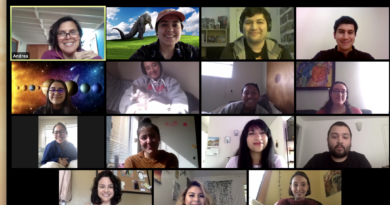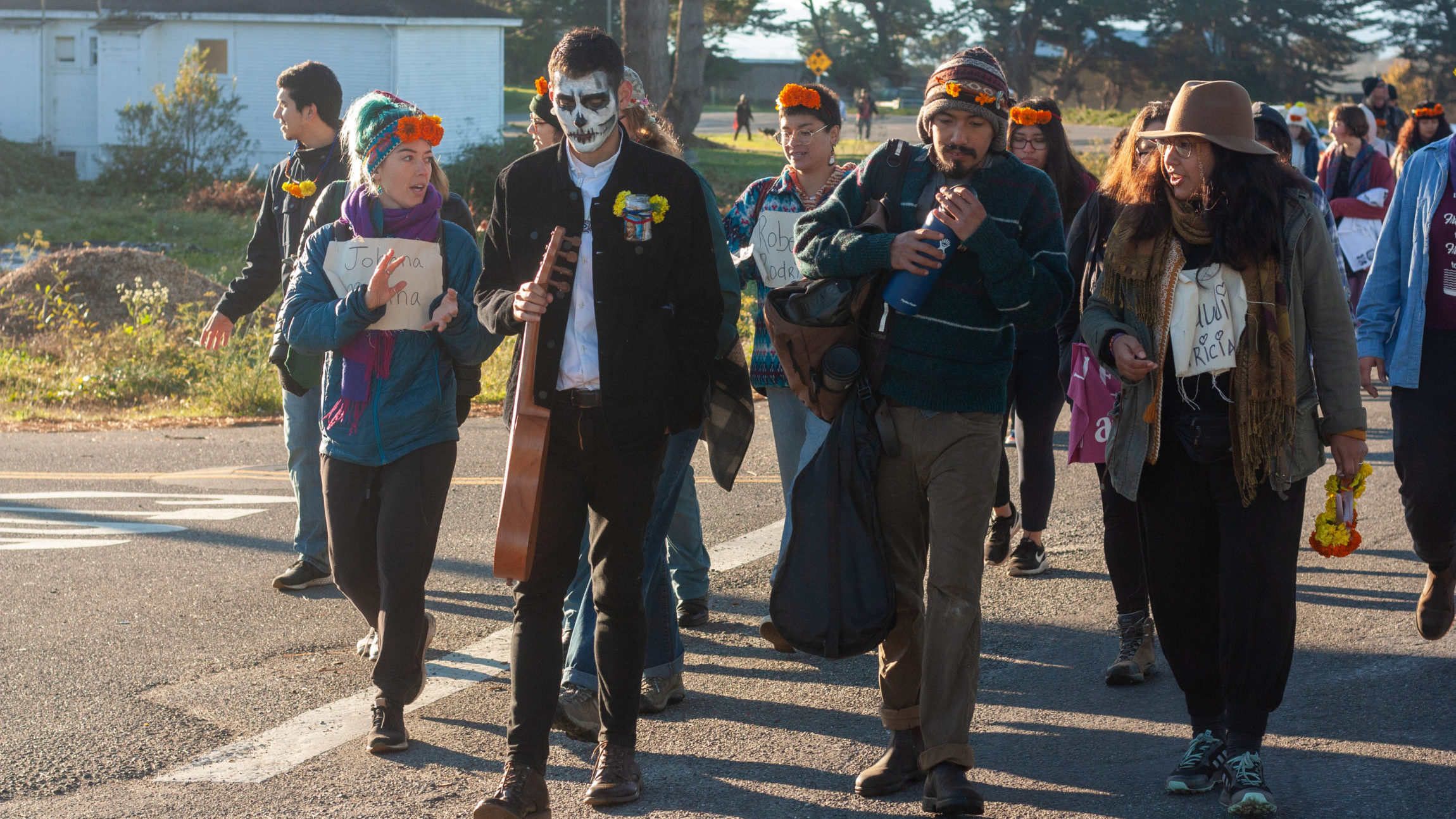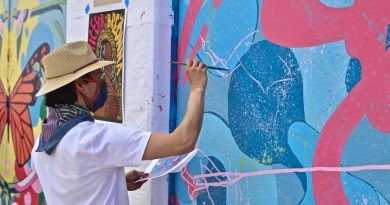IIyasah Shabazz: Activist, Author, Daughter of Malcolm X
On Feb 12, the African American Center for Academic Excellence (AACAE) invited esteemed community organizer, advocate and author, Ilyasah Shabazz to speak about her books, “Growing Up X: A Memoir By the Daughter of Malcolm X” and “Malcolm Little: The Boy Who Grew Up to Be Malcolm X”. Humboldt State University (HSU) invited many celebrated voices in communities of color to come and engage with students this month to celebrate Black Liberation Month.
Shabazz is the third of six children of prominent Black activist father, Malcolm X, and community organizer and educator, Betty Shabazz. Shabazz served for over 12 years in several capacities for the city of Mount Vernon; her duties and job included being Director of Public Relations, Director of Public Affairs and Director of Cultural Affairs.
Shabazz continues her family legacy by being an advocate for her community as well as for communities of color throughout the United States. El Leñador had the opportunity to speak with Shabazz during HSU’s celebration of Black Liberation Month.
EL: What was it like growing up with Betty Shabazz as a mother and what would you like the public to know more about your mother and her own work as an activist?
Shabazz: Oh my goodness. My mother had so much love. And she was just so amazing. She inspired me tremendously, simply because she gave me unconditional love. Direction. Guidance. Trust. And it’s because of her, I am the woman I am today.
[My mother] never accepted “I can’t” or “no” as an answer for herself, and she would often impart that unto young people – she was a college professor – and onto us, her kids.
Ilyasah Shabazz
She was a woman in her twenties who saw her home had been firebombed on Valentine’s Eve when she was just sleeping with her husband. A bomb was thrown in the nursery of their house – I was just looking at a picture of what the house looked like after – she was a young woman, she was pregnant, she had [then] five little girls, and then a week later she saw her husband just blown up in front of her. In spite of that all, she was still very loving, very giving, very kind, very smart.
When I got older I thought, gosh how did she do that? I don’t even have one child! So she went on to raise six girls and was still kind and still loving and had a great sense of humor – she loved dancing, and she was such a socialite and social activist.
I often would wonder “How was she able to do that?.” She never accepted “I can’t” or “no” as an answer for herself, and she would often impart that unto young people – she was a college professor – and onto us, her kids.
EL: There is mounting interest in women of color and Black women to become engaged in social service and advocacy – do you have any advice for young female activists and organizers today?
Shabazz: Yes. I think that, first, it is great that we are able to see beyond one’s nationality, gender and embrace the beauty in the diversity of who we are as human beings. I think when we are marching and demonstrating and protesting, that we are not just out there physically, but that we have a goal at the end of our marching and demonstrating.
I think that it is really important that we align ourselves with like-minded people, to have a goal, to have your checklist, and to make sure that – when the march is over – that you check off some of the items on your list and if you haven’t completed the checklist, then you continue until you are done. Otherwise you march and then the march is over, and then what have you accomplished?
EL: What are your thoughts on how activism has evolved from your father and mother’s generation to now?
Shabazz: Well, actually, I don’t know that it’s evolved. I think that we have continued the legacy, and I think that this generation is really brilliant and because of your willingness to see the humanity in each other, that your generation will accomplish so much.
EL: What do you think about [this] generation’s relationship with activism and social media? Do you think those tools work well together?
Shabazz: Oh they definitely work well together. As long as you don’t just, you know, create a hashtag and say ‘Oh I’m an activist’, that you utilize the internet by organizing across campus, across country, across state and that you are sharing and inspiring and sharing with others whatever it is that you are working on. That you are bringing attention to your issues.
EL: What do you think that [this] generation can do as consumers and citizens to actualize your family’s legacy?
Shabazz: Well, my family’s legacy is much like many people’s legacy. It is about recognizing the humanity in everyone. That we are all brothers and sisters under the fatherhood or family of God or the creator, that we are interconnected – just because we are human beings.
I think that it is really important that we align ourselves with like-minded people, to have a goal, to have your checklist, and to make sure that – when the march is over – that you check off some of the items on your list and if you haven’t completed the checklist, then you continue until you are done. Otherwise you march and then the march is over, and then what have you accomplished?
Ilyasah Shabazz
Just imagine how much better life would be if we didn’t have to fight for someone to stop oppressing us, or committing these criminal acts on us. Sometimes we say, ‘Oh it’s this system. Oh it’s this or that’, instead of realizing that it’s people who govern the policies and laws of our country and community and homes. So, just becoming more involved and saying ‘This is enough’.
EL: This is an election year, what is one issue you wish any candidates across the board to discuss or focus on more?
Shabazz: Well, education is really important. I think educational curriculum is not inclusive, and I think that it is extremely important that our children are properly educated based on historical facts of inclusion, about indigenous peoples and about criminal justice.
In 30 years we have seen young people – [primarily] young Black and Brown people – behind bars from 30,000 to 2.6 million. And a lot of these people behind bars; for petty crimes they didn’t commit or had to cop a plea for. I think it [education] is all about truth and justice.




